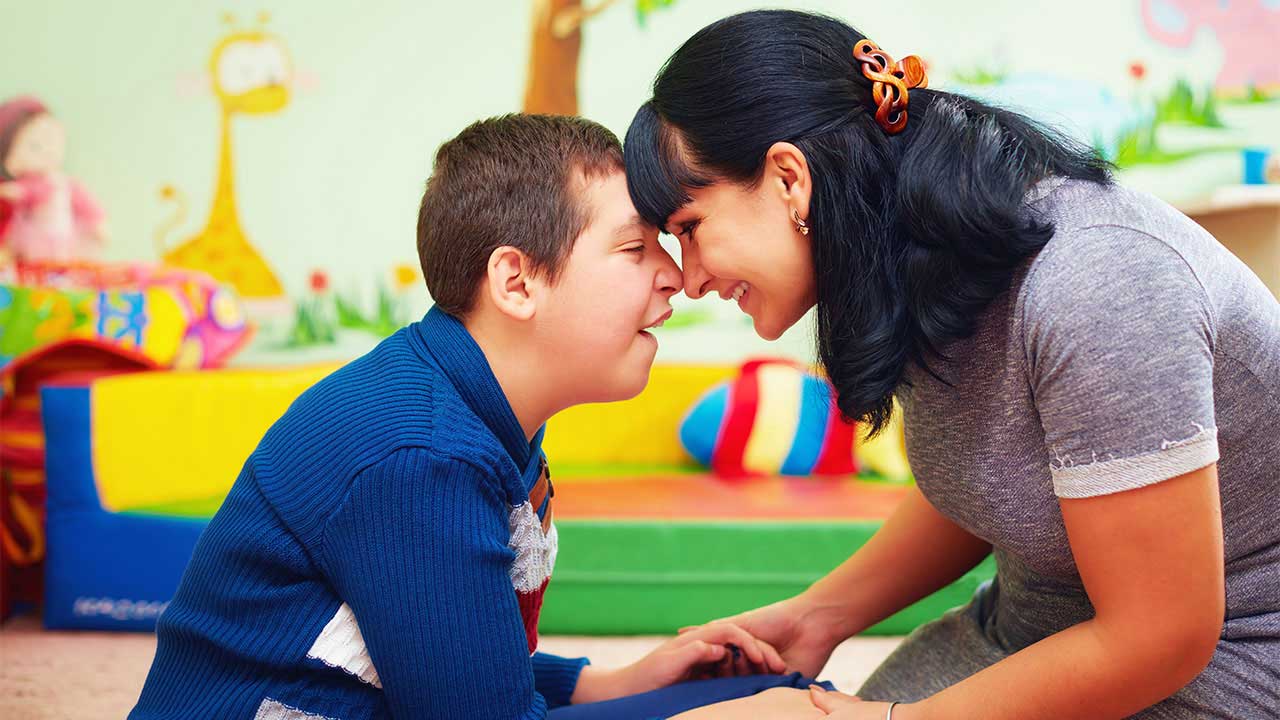While a diagnosis of Autism spectrum disorder (ASD) can be a step in the right direction for those families seeking greater understanding and support, for Australians the application process for the NDIS can be difficult. ASD is a neurodevelopmental disorder that influences the way people communicate and interact with others, and how they see the world. There are associated repetitive behaviours and unusual interests as well as many people experiencing unusual ways of learning, paying attention and/or reacting differently to sensations.
In more recent years, the way in which people are diagnosed with ASD has changed. ASD has varying levels of severity, varying characteristics and shows up differently in every person. While ASD is often diagnosed around the age of 2, its symptoms may be subtle, and a diagnosis can be given at any life stage.
For many people with Autism Spectrum Disorder (ASD), the NDIS provides the chance to receive supports they have never had before. But how do we find what the NDIS is able to fund and starting the often-difficult application process. This article will give you those answers, we dive deep into the subject of autism and the NDIS and take a look at why, and how an ASD diagnosis is used to determine eligibility for the scheme.
So, let’s take a look at the eligibility of the NDIS
As well as looking at the basic legal requirements of the NDIS that include age requirements, residence requirements as well as meeting the disability requirements that are categorised in to three levels.
If the individual is categorised under the first level, they will most likely not eligible the NDIS.
For higher levels of disability, funding may be available based around the impact the disability that generally relate to reduce functional capacity. This is assessed across a number of areas including communication, mobility, social interaction, learning, self-care, and self-management.
However, a second and third level diagnosis does not provide automatic access to the NDIS. Some conditions require more assessments or additional evidence. The NDIS has specific listings regarding what level of disability regarding the Autism spectrum may be eligible.
https://ourguidelines.ndis.gov.au/home/becoming-participant/applying-ndis/list-conditions-are-likely-meet-disability-requirements
There is an overall caveat that eligibility is assessed based around the persons overall functional capacity. It is based on an individual disability condition before assessing functional impact.
For autism, functional capacity is about the level of ability to do everyday tasks. The range and severity of symptoms can vary widely. Common symptoms include difficulty with communication, difficulty with social interactions, obsessive interests and repetitive behaviours.
What supports are funded through the NDIS?
Great! You have just been approved for your first NDIS plan. What now? Well now is the time to think about you and receiving the right support to allow you to reach your full capacity. A personalised plan will be made for you that is guided by you the plan outlines a little about you and the world you live in, your goals, things you want to work towards, and support needed to help you work toward your goals.
The most important thing to know going through the NDIS process is that no two plans will ever be the same because every person’s situation is different. In fact, the first plan created won’t be perfect, but that’s okay because your goals and support needs will continue to evolve over time.
The NDIS can provide funding for a wide range of supports and services, including therapists, support workers, and assistive technology – but they must be related to your disability and be considered reasonable and necessary.
Remembering that every situation is different, it is important to note that all support services offered must come under the banner of being reasonable and necessary. This means that the NDIS will only fund things that are directly related to your disability. There are three types of support categories: Core, Capital, and Capacity Building.
The most common ASD related supports and items that are able to be NDIS funded include:
- A support working to assist where needed
- Physiotherapy that assists with motor skills
- Speech Therapy to assist with communication skills
- Holiday Camps that assist in building interpersonal skills
Where to go from here
We are here to help, if you are experiencing difficulties surrounding the NDIS please reach out by contacting us. You are not alone on this NDIS journey and we will be with you to assist any way we can.
Plan Management is a support service that allows the individual the ability not have to worry about the financial aspect of the NDIS. It is designed to take the burden out of having to deal with the financial administration that comes with an NDIS plan. It is an important service for many people with ASD as it allows the individual to focus on what’s important, achieving their goals and being the best version of themselves.
Support Coordination is another service that is beneficial to have in an individuals NDIS plan. Support Coordinators are able to help you find and connect with the best service providers that align with your goals outlined in your NDIS Plan. It is beneficial for many people with ASD as it provides the opportunity for the individual to receive the services that are really going to help them achieve their goals and achieve their full capacity.



